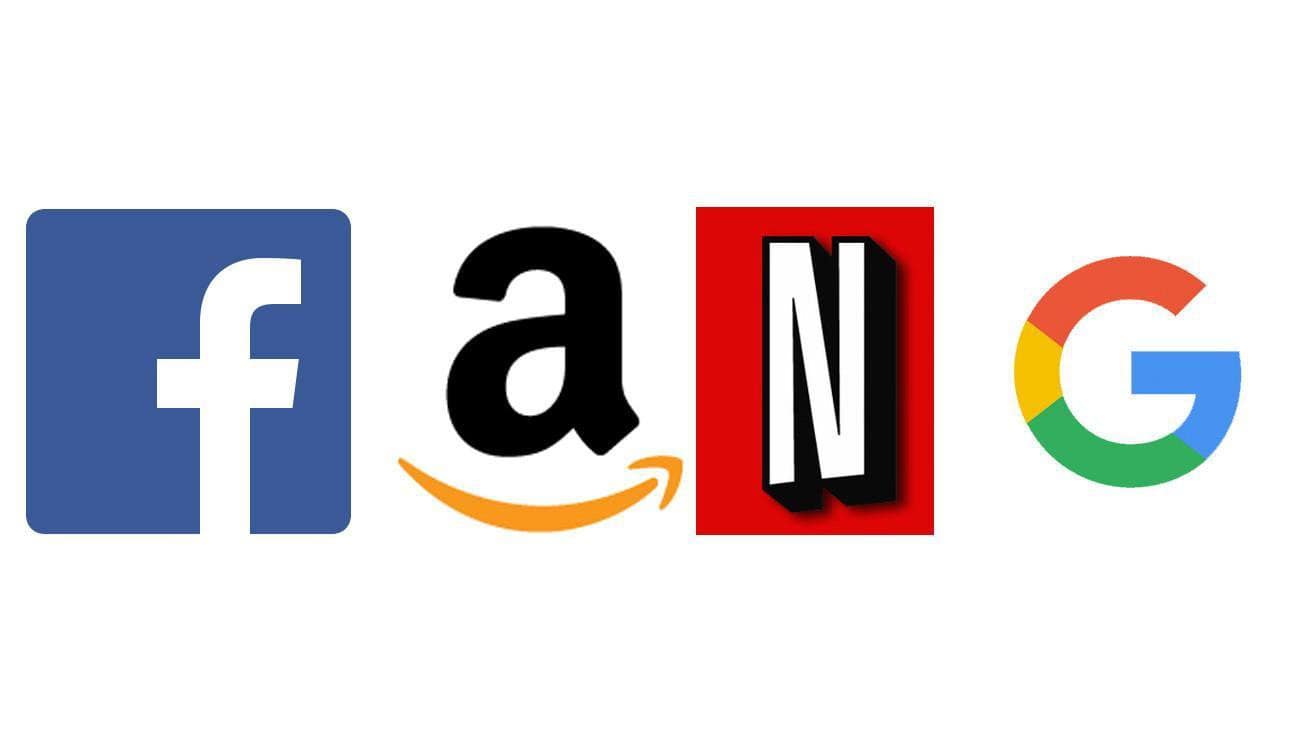
The FANG stocks have become some of the stock market’s most dominant stocks, disproportionately powering its gains, as well as its losses. But that isn’t necessarily a bad thing for the market.
Given the size and strength of tech giants, Facebook Inc., Apple Inc., ( Amazon.com Inc., Netflix Inc. and Alphabet Inc. (Apple is often added, making the group the FAANG stocks), sometimes a bad week for the group of stocks can lead the market down. Several experts referred to the power of these stocks a “double-edged sword” for the market.
For instance, Facebook led a steep decline in the FAANG stocks in March, after its data misuse scandal came to light on Sunday, March 18. By Friday, March 23, Facebook’s stock had dropped 13.5% since the previous Friday, losing more than $70 billion in market cap. Alphabet shares fell 9.5% during that five-day period, while Apple fell 7.3%, Netflix fell 5.5% and Amazon dropped 4.7%. The rest of the market fell with them, with the S&P 500 dropping about 6%, the Dow dropping 5.7% and the Nasdaq falling 6.5%.

“Because [the FAANG stocks] are so influential … they, in a sense, are the market,” said Ed Yardeni, president of global investment firm Yardeni Research Inc. However, Yardeni said this dominance is neither good nor bad for the market as a whole — “it simply is what it is.”
Experts said that while having such a small group of stocks dominate the market is unusual and does have significant impact, the situation is neither unprecedented nor record-setting. For example, there were the “seven sisters” of the 1950s in the oil industry and the break-up of the Baby Bells in the 1980s.
For most of the FAANG stocks, one of the biggest threats that they face is regulation surrounding issues of data security and privacy, said Jack Ablin, founding partner of Cresset Wealth Advisors.
Regulation of the tech giants has been looming over the past few months, with some lawmakers calling for the end of what’s effectively been the tech industry’s self-regulation after the revelation of a data misuse scandal at Facebook involving the political data firm Cambridge Analytica in March.
The FANG companies, particularly Facebook and Google, are also required to comply with the European Union’s new privacy rule called the General Data Privacy Regulation, which forces companies operating within the EU to adopt guidelines surrounding user data. The new regulation went into effect on May 25.
“I think that if there was sweeping regulation that caught those five names in some kind of regulatory net, it would be hugely problematic for the market as a whole — just because of their sheer size,” Ablin said.
Yardeni likened the power of the FAANG stocks to the dominant tech stocks of the dotcom-era of the 1990s, which included companies such as Cisco Systems and IBM Corp. However, Yardeni said he does not think that today’s FANG stocks are a bubble that could burst “and take the whole market down with them.”
The key difference is that the FAANG stocks have the massive revenue and earnings to justify their enormous valuations, Yardeni said. Last quarter, for example, Facebook reported Q1 revenue of $11.97 billion, up almost 50% annually, while Alphabet reported Q1 revenue of 24.86 billion, up 24% annually.
“These were all great companies back then, but [they were] ridiculously overvalued,” Yardeni said. “From a stock market standpoint, I think [the FAANG stocks’] market cap is justified by their earnings.” For example, Apple’s forward price-to-earnings ratio is just 14, Facebook’s is 20 and Alphabet’s is 23. Only Amazon (81) and Netflix (77) sport extravagant forward price-to-earnings ratios, as both those companies continue to re-invest heavily for future growth.
S&P 500 Dow Jones Indices senior index analyst Howard Silverblatt noted the FANG stocks can be volatile in either direction, but in recent weeks the stocks’ movements have been largely positive.
“They’re still dealing with earnings, Facebook has recovered from events in Washington,” Silverblatt said. Facebook’s stock has recovered all of the losses that occurred when the Cambridge Analytica news first came out in mid-March.
“[The FANG stocks] are showing growth, they are showing utilization by customers, and in some ways they are continuing to expand,” he said.
Since the beginning of the year, Netflix shares have jumped a whopping 83%, Amazon is up 38%, Apple stock has increased 11%, Facebook shares have increased 5% and Alphabet shares are up 3%.
Yardeni noted that the FAANG stocks may simply reflect the market’s volatility, rather than causing it. The reason is that when investors are worried about the overall market, they tend to sell off ETFs, which often contain the FAANG stocks. This could mean that the FANG stocks are sold off disproportionately when investors get jittery.
“So do [the FAANG stocks] drag down the market, or do nervous investors sell off ETFs that included them?” Yardeni said.

